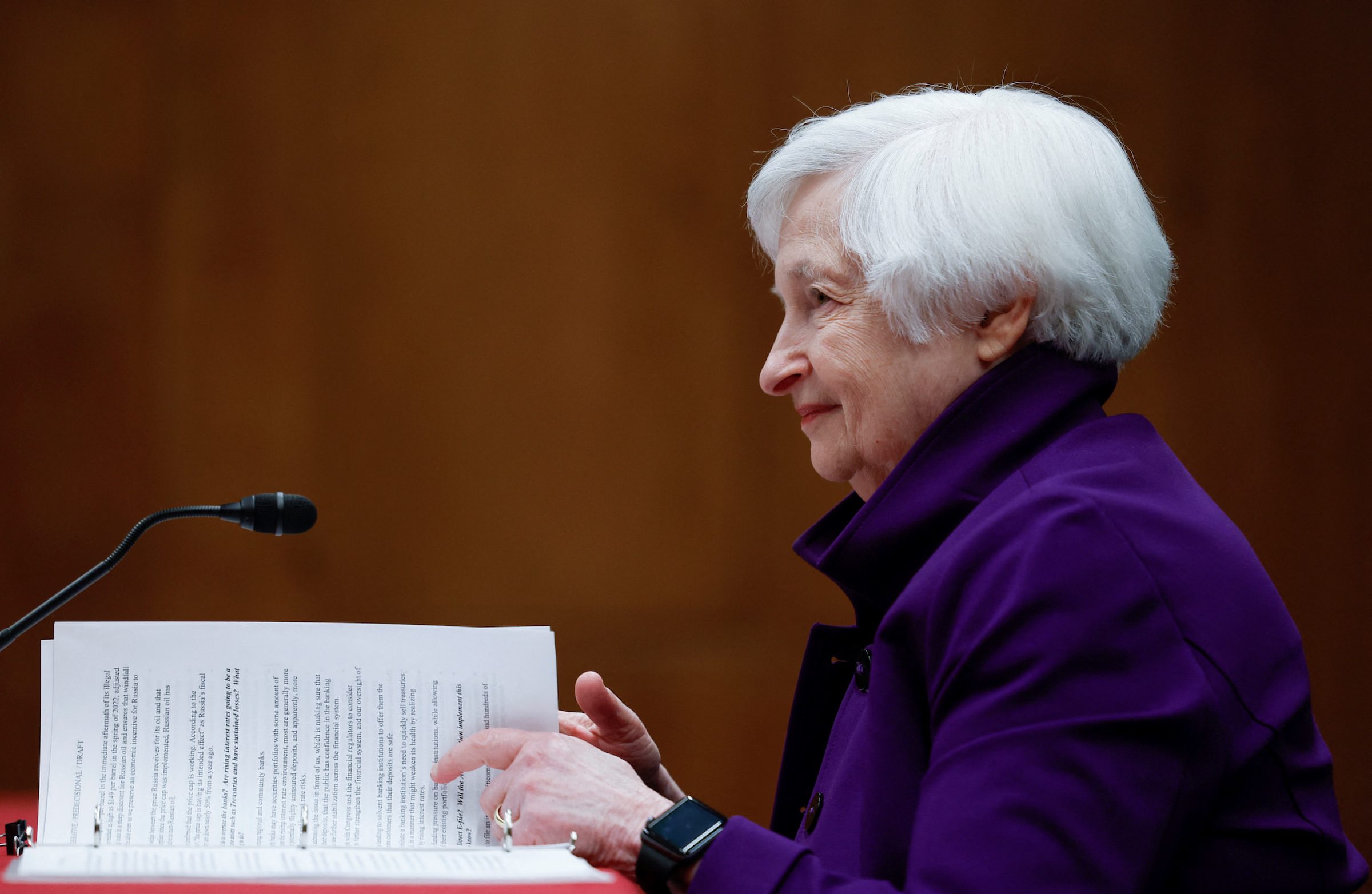SUMMARY
This is AI generated summarization, which may have errors. For context, always refer to the full article.

WASHINGTON, USA – The brewing US banking crisis seems far removed from the northeastern Vermont town of St. Johnsbury, but local Passumpsic Bank executive Daniel Kimbell grew concerned when he heard US Treasury Secretary Janet Yellen’s congressional testimony last week.
Yellen told a US Senate hearing on March 16 that uninsured deposits would only be guaranteed in banks deemed a contagion threat, raising fears that banks like Passumpsic, with $900 million in assets, might see business deposits above the $250,000 insurance limit flee for perceived safety to far larger institutions.
“A lot of us were kind of offended at what had come out, that the Treasury was going to guarantee all of the deposits for the larger banks – the too-big-to-fails – and us smaller banks were going to be on our own,” Kimbell told Reuters at an American Bankers Association conference in Washington.
While big banks have dominated headlines, the country’s 4,258 community banks, which are more risk-averse, actually account for more than 90% of all chartered banks.
They held just 11% of the $23.6 trillion in US banking assets at the end of 2022, but nearly half are chartered in counties with populations of 50,000 or less, making them a key source of capital for small-town America and minority urban communities alike.
Yellen, President Joe Biden, and the Federal Reserve and Federal Deposit Insurance Corporation boards had invoked “systemic risk exceptions” after the failures of California’s Silicon Valley Bank (SVB) and New York’s Signature Bank that allowed them to protect uninsured deposits, including those of wealthy technology executives and cryptocurrency investors.
Yellen on Tuesday, March 21, shifted her emphasis, vowing to safeguard deposits at smaller banks and saying that the Treasury and regulators were prepared to intervene if further deposit runs threaten more banking contagion.
She put a particular emphasis on community banks, saying they were a key part of a vibrant, competitive banking market and essential to serving rural and urban markets across the United States.
“The community banks in this country, we know, are strong and resilient. And I think banks need to reassure their customers, that they are strong and resilient, and the government needs to do exactly the same thing,” she said.
Kimbell, who heads wealth management at Passumpsic Bank, said her reassurances “took the anxiety out of the room” over deposits, which was shared by banks large and small.
A spokesperson for the Independent Community Bankers Association (ICBA) said that member banks did not experience deposit runs amid the recent turmoil because customers perceive them as safely run and want to bank with local institutions.
Community banks play an important political role – there are often dozens of such institutions in every congressional district, and the Biden White House is concerned about further consolidation in financial services. They were a key pillar in COVID-19 pandemic programs to keep small businesses afloat and their employees paid during health lockdowns.
ICBA president Rebeca Romero Rainey, who had previously called for equal treatment for SVB and Signature, said Yellen’s remarks “recognize that if policymakers decide to provide unlimited deposit insurance to some institutions, they cannot leave others out – certainly not the community banks that have, as always, operated on a safe and sound basis.”
Aaron Klein, a former US Treasury official who helped craft the 2010 Dodd-Frank financial reform law, said it was hard to imagine the Treasury and regulators allowing depositors in a “Main Street” community bank to take losses in a failure after guaranteeing deposits for extremely wealthy individuals and businesses with funds in SVB and Signature Bank.
“The inequity of treating uninsured depositors differently at that small bank would be quite a problem, probably greater than whatever legal jujitsu would be required to invoke the systemic risk exception,” said Klein, a senior fellow at the Brookings Institution think tank in Washington. – Rappler.com
Add a comment
How does this make you feel?
There are no comments yet. Add your comment to start the conversation.